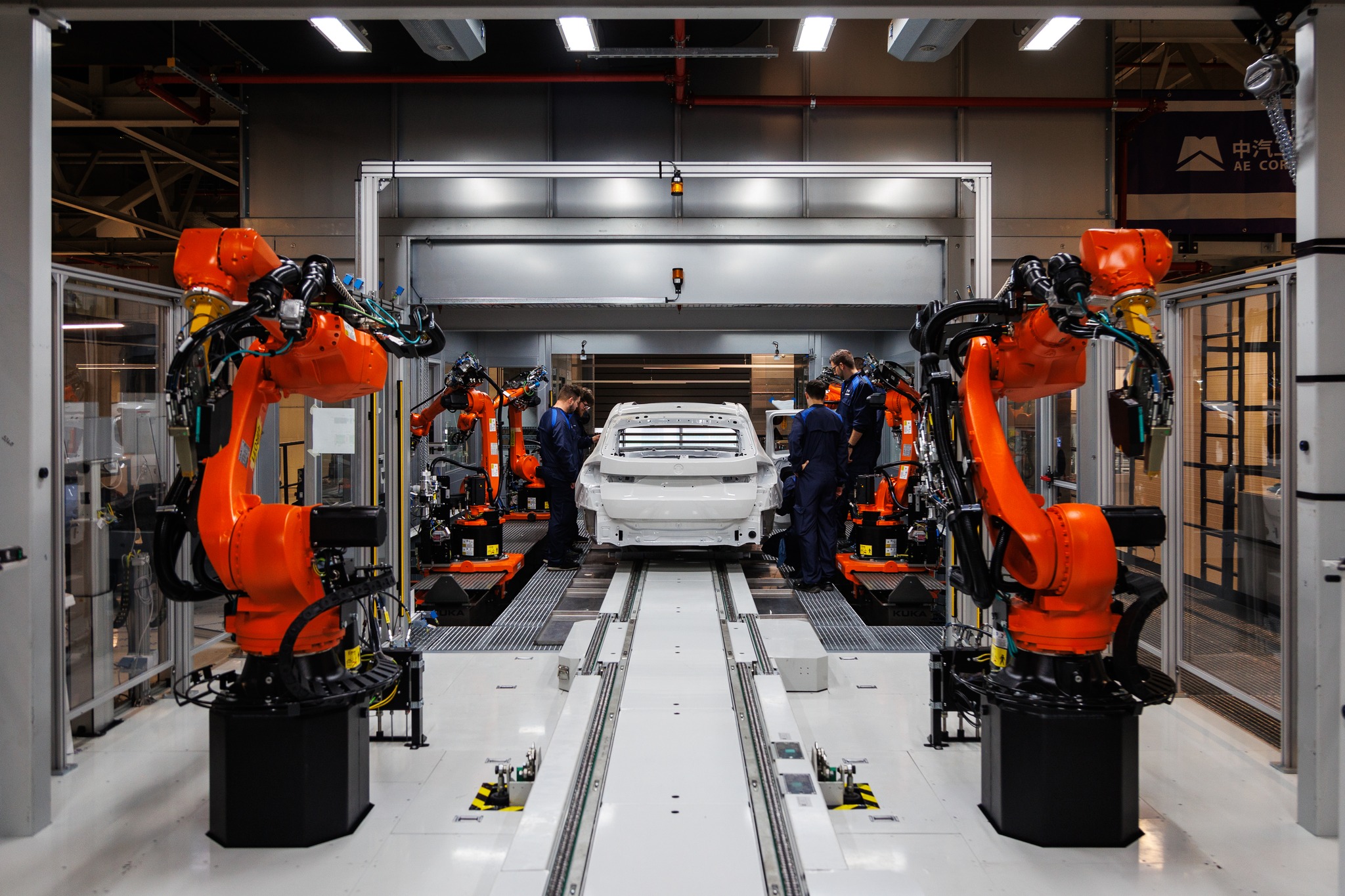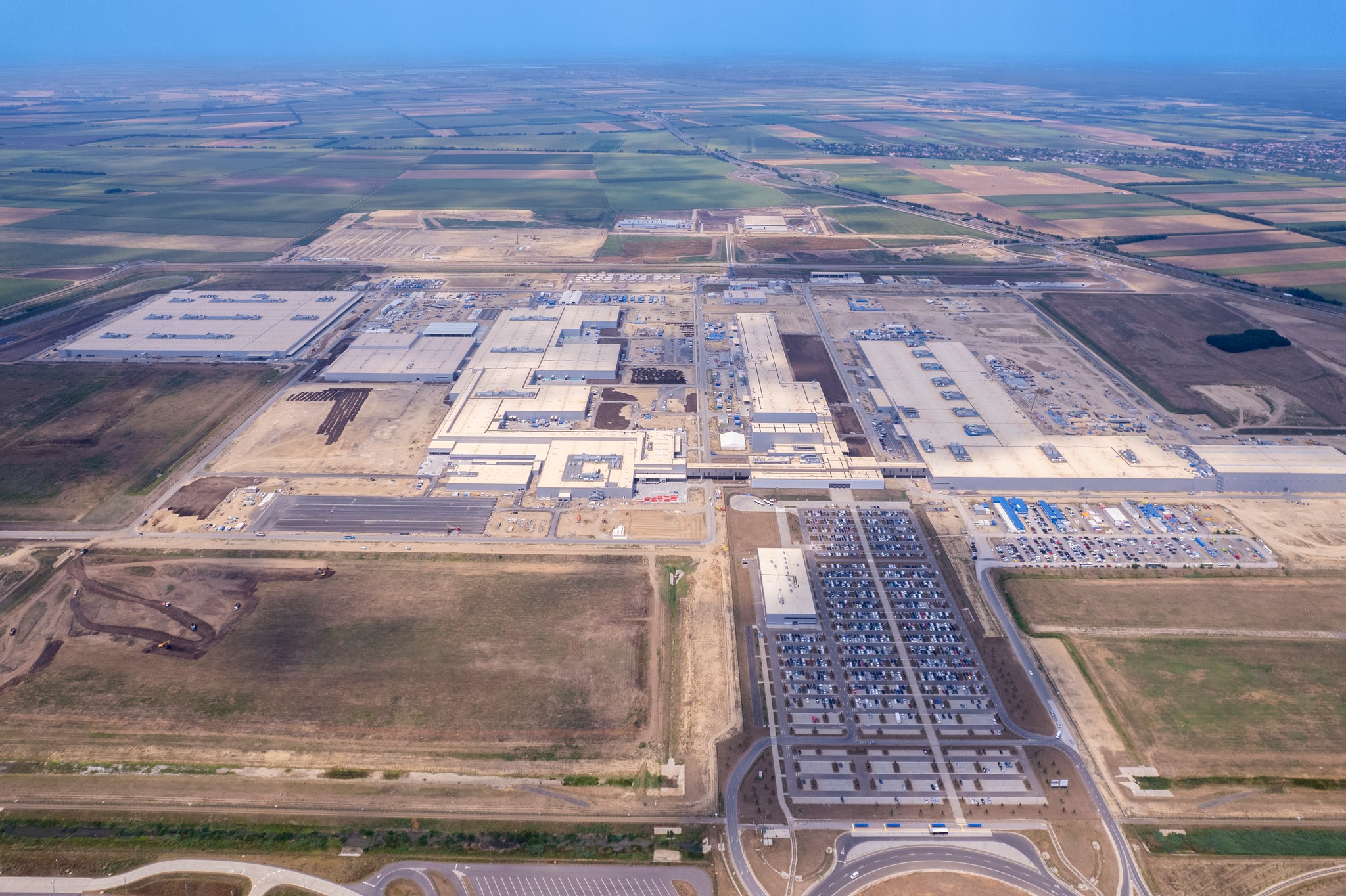
"No other company has ever entered into such a long-term cooperation as with the BMW car manufacturer in Debrecen."Continue reading

Pre-series production at the BMW plant in Debrecen (eastern Hungary) will start at the end of 2024. The factory will be able to paint 30 car bodies per hour, but this can be increased in the future. Special technological solutions will help protect the environment, reports dehir.hu.
The buildings of the BMW Group Factory Debrecen will soon take their final shape.
By using a variety of new processes and systems such as power-to-heat technologies,
the Debrecen plant will be the first painting plant in the BMW Group’s global production network to completely break the fossil fuel cycle.
The new plant in Debrecen, where trial production will start at the end of this year, will serve as a model for all future plants based on the BMW iFACTORY principles.
The factory will be able to paint up to 30 car bodies per hour in a fully automated painting process. This capacity can be significantly increased in the future. The state-of-art technology will be put into operation by the experts using BMW iX1 models. The 33,000 square meters of floor space in the three-story building, housing the paint shop, provides ample workspace for modern production.
The principle of electricity-based heat generation is essential for the operation of the Debrecen plant without fossil fuels such as natural gas.
All furnaces and other processes required for technological operations will be powered entirely by electricity, rather than by natural gas as was previously the case. This principle will significantly reduce the carbon emissions of the plant, even though the operation without natural gas will increase electricity consumption. In Debrecen, the energy needed for production outside the factory site will come exclusively from renewable energy sources.
The so-called “Heat Grid” energy efficiency project has already been successfully implemented during the design phase of the new painting plant. The innovative concept combines several measures for efficient energy recovery, allowing for additional energy savings of up to 10 percent. The central element of the project is a large multi-valve storage boiler that collects waste heat from the compressed air supply, drying ovens and cooling systems to be reused for preheating the water circuit.
Another unique feature of the Debrecen infrastructure is that the entire system operates at a water supply temperature of only 65 degrees Celsius, compared to 90-120 degrees Celsius in previous installations. The hot water is used to supply the ventilation system in the halls of the factory, ensuring stable conditions in the booths at an operating temperature of 22 degrees Celsius and a humidity of 60-65 percent.
Debrecen will rely on the innovative eRTO process to clean the exhaust air. eRTO (Electrically-heated RTO) stands for “electrical regenerative thermal oxidation,” a process that cleans the air at temperatures between 800 and 1,000 degrees Celsius and, unlike in the past, works solely with electricity. During the cleaning process, the exhaust air passes through a ceramic bed where the solvent residues are burnt off. This requires the air to be heated to a high temperature for a short period of time. Thanks to a high heat recovery rate – heat is effectively retained in the system – the eRTO system provides a very high level of energy efficiency.

The plant. Photo: Facebook/BMW Group Gyár Debrecen
In addition to innovative technologies, comprehensive digitalization will also contribute to the high level of efficiency of the Debrecen plant.
For example, fully automated, driverless AGVs (Automated Guided Vehicles) transport the bodywork to the right operations. In addition, Automated Optical Inspection (AOI) is used, applying artificial intelligence to monitor paint quality and identify areas requiring refinishing.
People interested in applying for positions at the company can apply on the careers page, where the latest job vacancies are constantly available.
Via dehir.hu; Featured image via Facebook/BMW Group Gyár Debrecen